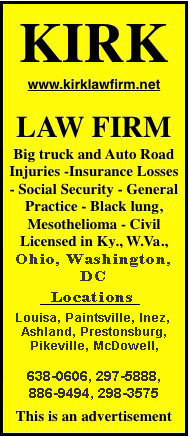July 3, 2018
UPDATE: KENTUCKY CITY HAD HIGHEST HEAT INDEX IN THE NATION WEDNESDAY AND THURSDAY!!!
GLOBAL WARMING?
This will come as no surprise to anyone who has been outdoors, but Louisville’s heat index is tops in the entire country right now.
{The heat index in Louisville hit 108 degrees at 12:30 p.m. Thursday, according to figures from The Weather Channel. That was the highest listed number anywhere in the country at the time — including the country’s deserts and sub-tropical climates.}
Louisville isn’t the first place that comes to mind when you think about the hottest places in the country, but this heat wave we’re caught up in puts other hotspots to shame. Parts of Florida, the southernmost state in the continental U.S., are sitting at a cool 87 at the moment – sounds nice, right? Southern Arizona was at 97 degrees at 12:30 p.m., which sounds like jacket weather right about now.
Heat index is a measurement of how hot it feels outside when humidity is taken into consideration with the actual temperature. Louisville’s temperature reached 94 at 12:30 p.m. Thursday as the heat index sat at 108.
These scorching figures are, unfortunately, nothing new this summer.
InsideClimate News’ James Bruggers pointed out that Louisville also had the highest heat index in the U.S. at one point on Wednesday, turning plenty of patio cookouts into crowded kitchens – and giving people plenty of excuses to “stay hydrated” at Independence Day parties.
A bit of a break is expected this weekend along with thundershoers. Current projections have highs in Louisville and most of the state in the mid 80s this weekend before temperatures jump back up into the 90s next week. It’s not much of a drop, but it might be the best we get for a while.
###
Temp index expected to hit 106;
An Excessive Heat Warning means that a prolonged period of dangerously hot temperatures will occur

The National Weather Service in Charleston has issued an
Excessive Heat Warning, which is in effect from noon to 8 PM EDT
Wednesday. The Excessive Heat Watch is no longer in effect.
* HEAT INDEX VALUES... Up to 106 degrees due to temperatures in the mid
80s, and dewpoints in the lower 70s.
* TIMING… Noon to 8 pm both days, highest values 2 to 7 pm.
* IMPACTS… The heat and humidity may cause heat stress during outdoor exertion or extended exposure. Limited visibilities will make travel very difficult.
PRECAUTIONARY/PREPAREDNESS ACTIONS…
* Take extra precautions…if you work or spend time outside. When
possible…reschedule strenuous activities to early morning or
evening. Know the signs and symptoms of heat exhaustion and heat
stroke. Wear light weight and loose fitting clothing when
possible and drink plenty of water.
* To reduce risk during outdoor work…the occupational safety
and health administration recommends scheduling frequent rest
breaks in shaded or air conditioned environments. Anyone overcome
by heat should be moved to a cool and shaded location. Heat
stroke is an emergency…call 9 1 1.
An Excessive Heat Warning means that a prolonged period of
dangerously hot temperatures will occur. The combination of hot
temperatures and high humidity will combine to create a dangerous
situation in which heat illnesses are likely. Drink plenty of
fluids…stay in an air-conditioned room…stay out of the sun…
and check up on relatives and neighbors.
Young children and pets should never be left unattended in
vehicles under any circumstances. This is especially true during
warm or hot weather when car interiors can reach lethal
temperatures in a matter of minutes.
A Heat Advisory means that a period of hot temperatures is
expected. The combination of hot temperatures and high humidity
will combine to create a situation in which heat illnesses are
possible. Drink plenty of fluids…stay in an air-conditioned
room…stay out of the sun…and check up on relatives and
neighbors.
Take extra precautions… if you work or spend time outside.
When possible…reschedule strenuous activities to early morning
or evening. Know the signs and symptoms of heat exhaustion and
heat stroke. Wear light weight and loose fitting clothing when
possible and drink plenty of water.
To reduce risk during outdoor work…the occupational safety
and health administration recommends scheduling frequent rest
breaks in shaded or air conditioned environments. Anyone overcome
by heat should be moved to a cool and shaded location. Heat
stroke is an emergency…call 911.













![Foothills-Bundle] Foothills-Bundle](https://thelevisalazer.com/wp-content/uploads/2020/05/Foothills-Bundle-422x74.jpg)






